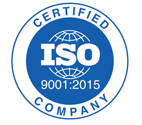As the U.S. election approaches, industries closely regulated by federal agencies, like the medical device sector, are keenly watching for potential shifts in FDA regulations. The direction of these policies can differ significantly depending on the administration in power. This article explores how FDA regulations might evolve under a Trump versus a Harris presidency and what this could mean for the medical device industry.
1. Speed vs. Safety in Regulatory Pathways
If elected, a Trump administration would likely emphasize accelerating the FDA approval process for medical devices. Historically, Republican administrations have pushed for deregulation to support innovation, streamline compliance requirements, and reduce the time it takes for new devices to reach the market. Under Trump, we could see policies aimed at simplifying pathways like the 510(k) process, which would benefit companies developing novel technologies in digital health, AI, and wearables.
Conversely, a Harris administration may place a greater emphasis on safety, transparency, and robust regulatory oversight. This could mean a stricter review process, especially for high-risk devices and those with complex technologies. Her FDA would likely prioritize thorough testing and post-market surveillance to safeguard public health, which could extend review times but potentially increase the reliability and safety of devices in the market.
2. Cybersecurity and Digital Health
With the growth of connected healthcare devices, cybersecurity has become a crucial focus for the FDA. Under a Harris administration, we might expect tighter security standards, especially for devices that access health networks or collect patient data. Harris’s FDA could implement more rigorous cybersecurity requirements, aiming to prevent potential breaches and protect patient privacy.
In contrast, a Trump administration might adopt a more flexible stance, focusing on industry-led best practices for cybersecurity. While maintaining security standards, they may encourage manufacturers to innovate and self-regulate rather than face additional FDA mandates, potentially accelerating the development of connected devices.
3. International Regulatory Alignment
International compatibility in regulations is critical for U.S. companies that aim to compete globally. A Harris-led FDA could emphasize aligning U.S. regulations with international standards like the EU MDR. This alignment could streamline access for U.S. companies to European and other international markets, facilitating smoother global distribution and compliance.
A Trump administration might focus more on domestic manufacturing competitiveness, pushing for U.S.-specific regulatory adjustments that prioritize American-made devices. This approach could simplify U.S. compliance requirements but may create challenges for companies that also need to meet international standards.
4. FDA Funding and User Fees
User fees are essential for the FDA’s review processes, with these fees enabling timely evaluations of new devices. A Trump administration might seek to reduce these fees, aiming for a leaner budget with less reliance on industry contributions. This could mean fewer resources at the FDA but potentially lower costs for device manufacturers.
In contrast, Harris could prioritize a strong FDA budget, potentially adjusting user fees to support comprehensive reviews and increase staffing for device evaluations. With a higher budget, the FDA might be able to expand its capabilities, improving oversight and post-market surveillance.
While the potential impact of each administration on FDA regulations is complex, companies can prepare by understanding the likely priorities of each candidate. A Trump administration would likely prioritize market access and innovation with a streamlined regulatory approach, while Harris’s policies might focus more on safety, cybersecurity, and international alignment. Either way, medical device companies should stay informed of political developments to anticipate and adapt to shifts in the regulatory landscape.
If you need any assistance with Quality or Regulatory Compliance matters, please book an appointment with our CEO, Stefanie Wichansky . We understand how challenging it can be to maintain compliance while managing your day-to-day operations. We have a large, experienced team of QA/RA consultants throughout the country who can seamlessly integrate with your team to fill any gaps in expertise or bandwidth, ensuring you stay on track with your compliance goals. We would welcome the opportunity to work together!
|
|


